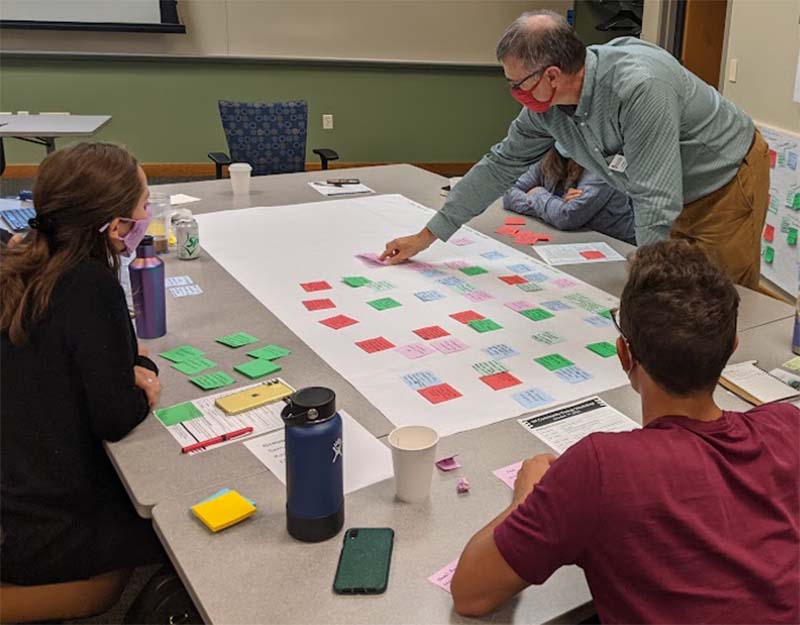The visibility of climate change has sparked public debate on community resilience and adaptation regarding local energy management. In Wisconsin, less than a quarter of the state’s energy portfolio comes from clean energy technologies. But Wisconsin has the potential to leapfrog over the barriers that surrounding states have faced in the energy transition and become a leader in the local energy transition.
To support this local energy transition, our interdisciplinary team organized two workshops in 2021 and 2022 bringing together experts, community leaders, researchers, and students from throughout Wisconsin to explore how collaboration and community engagement can build capacity to address local energy needs. Our study surveyed participants and the notes from their group activities to help us understand Wisconsinites’ thoughts about energy independence, and how local decisions are made about adopting energy technology.
The two workshops provided insight into some key questions: How do new energy technologies meet community energy goals? What are the motivations and barriers to technology adoption? Overall, there was high support for a wide range of clean energy technologies from renewables to microgrids, and even new nuclear technologies. However, there is a tension between the interest in technology adoption and the perceived feasibility of doing so: participants expressed concerns about resource availability and political barriers to local efforts.

Participants stressed that climate change can be polarizing and emphasized the need for good communication strategies for engaging the public in any clean energy transitions. The groups indicated that decision-making and access to resources in community energy decisions should include historically excluded communities and perspectives.
These workshops revealed shared perspectives and opportunities for creating effective collaborative projects that engage local communities in the energy transition. They also showed that workshops are an effective method for understanding local decision-making about climate change adaptation. Results show that community-engaged partnerships can help Wisconsin communities make their own local energy decisions.
To address challenges posed by climate change and the energy transition, community needs may vary based on their unique social, political and cultural contexts, and not all communities are equipped to navigate the ever-changing landscape of emerging science and technology related to the energy transition. Building community capacity to participate in the energy transition in a way that works for them is a big task, and it may look different in each community. The only way to find out how to do it is for governments and researchers to meaningfully engage with them in partnership.
The UW–Madison energy workshop research team is led by Dominique Brossard, and researcher Mikhaila Calice, with support from Morgan Edwards, Sherrie Gruder, Paul Wilson, Scott Williams, Katie Mummah, Sarah Johnston, and Greg Nemet. This research was supported by the Holtz Center for Science and Technology Studies luster grant.
Author Affiliation
- Mikhaila N. Calice, UW–Madison Department of Life Sciences Communication postdoctoral researcher, mcalice@wisc.edu